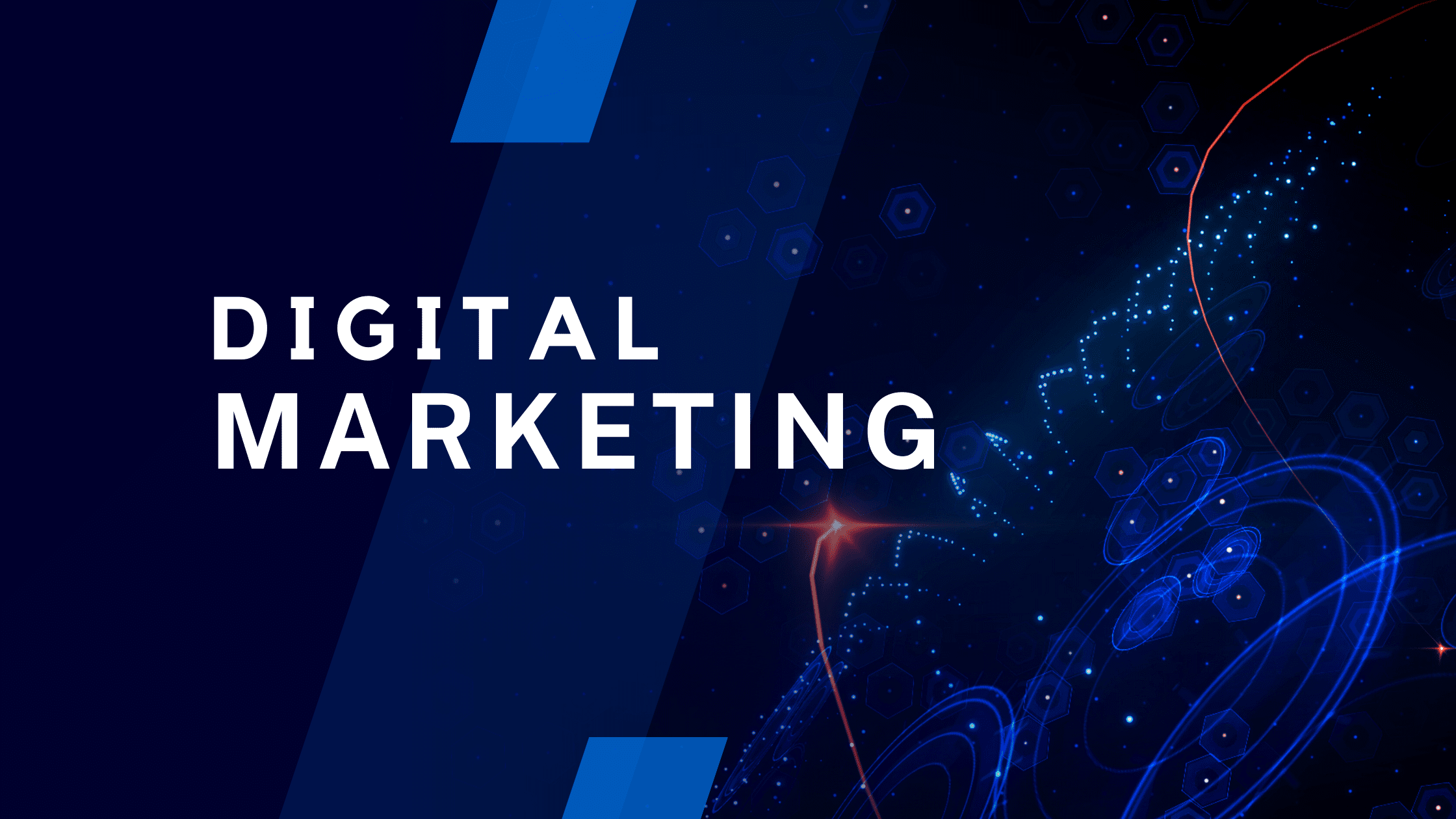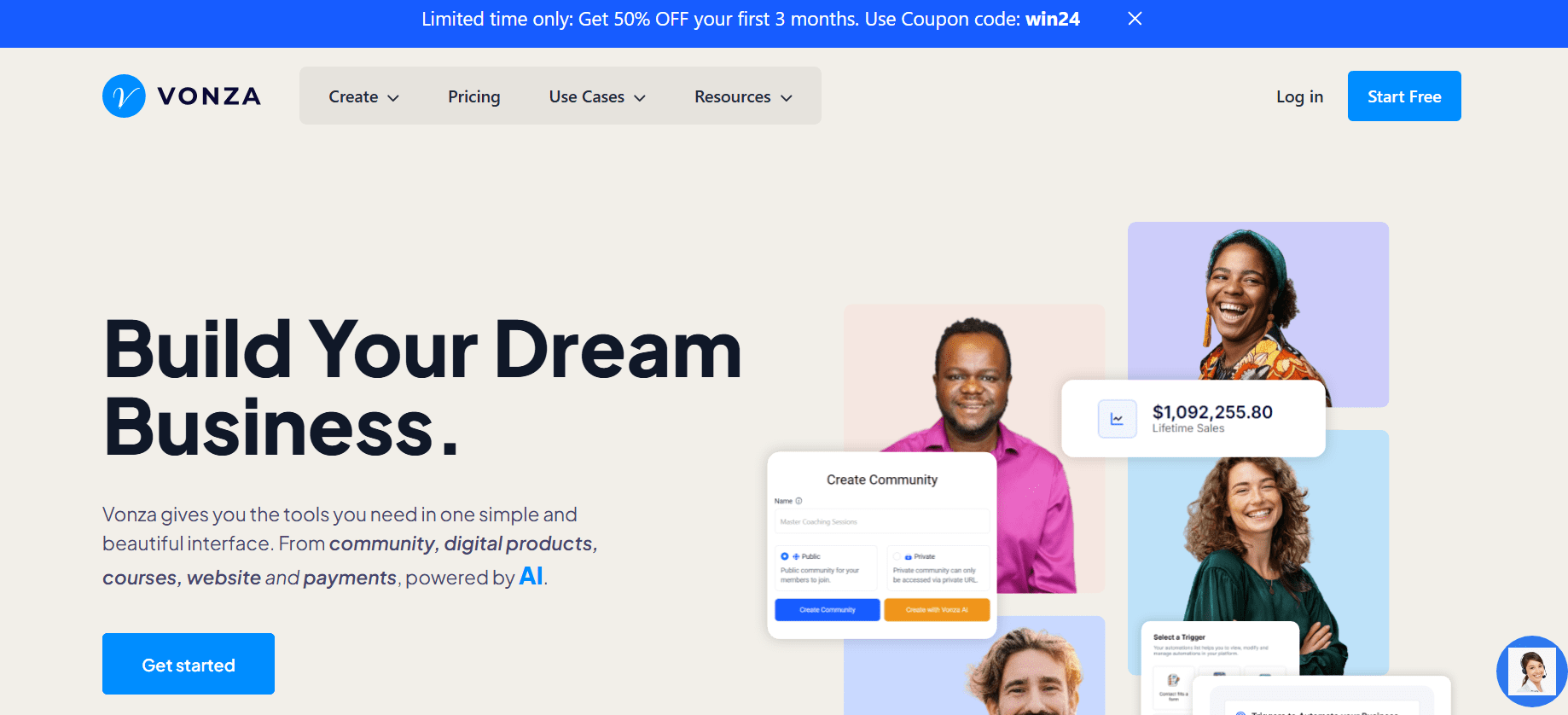Digital marketing refers to the practice of promoting products, services, or brands using various digital channels and technologies. It involves utilizing the internet, mobile devices, social media platforms, search engines, email marketing, and other digital mediums to reach and engage with a target audience.
Digital marketing encompasses a wide range of tactics and strategies that aim to attract customers, generate leads, increase brand awareness, and drive sales or conversions.

Benefits of Digital Marketing
Digital marketing offers several benefits compared to traditional marketing methods. Here are some key advantages:
Increased Reach: Digital marketing allows businesses to reach a global audience. With the widespread use of the internet and mobile devices, you can connect with potential customers across geographical boundaries, expanding your reach far beyond what traditional marketing methods can achieve.
Targeted Advertising: Digital marketing enables precise targeting of specific audience segments based on demographics, interests, behavior, and other parameters. This targeted approach ensures that your marketing efforts are directed towards the right people, increasing the chances of conversion and maximizing return on investment (ROI).
Recommended Article: Top Online Marketing Tips
Cost-Effectiveness: Digital marketing often requires lower upfront costs compared to traditional marketing channels like print ads or television commercials. Small and medium-sized businesses can leverage digital platforms with a smaller budget and still achieve significant results. Additionally, digital marketing allows you to track and measure your campaigns’ performance in real-time, enabling you to optimize your spending and allocate resources more effectively.
Measurable Results: Unlike traditional marketing methods, digital marketing provides extensive data and analytics. You can track key metrics such as website traffic, conversions, click-through rates, engagement rates, and more. These insights help you understand the effectiveness of your campaigns, identify areas for improvement, and make data-driven decisions to enhance your marketing strategies.
Personalized Customer Experience: Digital marketing enables businesses to deliver personalized and targeted messages to their customers. By analyzing customer data and preferences, you can tailor your marketing campaigns to individual users, offering relevant content, product recommendations, or personalized offers. This personalized approach enhances customer engagement and fosters long-term customer relationships.
Flexibility and Agility: Digital marketing allows you to adapt and modify your campaigns quickly. You can make real-time adjustments to your ad copy, target audience, budget, and messaging based on the performance and feedback received. This flexibility enables you to optimize your marketing strategies and respond promptly to market changes and customer needs.
Interaction and Engagement: Digital marketing provides opportunities for direct interaction and engagement with your audience. Social media platforms, email marketing, live chat, and community forums enable two-way communication, allowing you to build relationships, address customer queries, provide support, and gather feedback. This engagement fosters customer loyalty and brand advocacy.
These benefits of digital marketing make it a powerful and essential tool for businesses of all sizes to connect with their target audience, drive brand awareness, and achieve their marketing objectives.

25 Strategies to Enhance Digital Marketing
1. Define Clear Goals
When setting goals, be specific about what you want to achieve. For example, increasing website traffic by 20% in the next quarter or acquiring 500 new email subscribers. Having clear goals provides direction and helps you measure your success.
2. Identify Your Target Audience
Conduct market research, surveys, and analyze customer data to understand who your target audience is. Determine their demographics, interests, preferences, and online behaviors. This information will guide your marketing strategies and help you reach the right people.
3. Develop Buyer Personas
Build detailed profiles of your ideal customers. Consider factors like age, gender, location, job title, pain points, goals, and motivations. This will help you create personalized content and tailor your marketing messages to resonate with your target audience.
4. Optimize Your Website
Ensure your website is user-friendly and provides a seamless experience across different devices. Optimize your website for search engines by incorporating relevant keywords, meta tags, and headers. Improve page load speed, navigation, and overall usability to keep visitors engaged and encourage conversions.
5. Implement Search Engine Optimization (SEO)
Conduct keyword research to identify the terms and phrases your target audience is using to search for your products or services. Optimize your website’s content, meta descriptions, URLs, and headings to improve organic search rankings. Develop a content strategy that focuses on providing valuable information and solutions to your audience’s queries.
6. Develop valuable, informative, and engaging content that aligns with your target audience’s interests
Use a variety of formats such as blog posts, articles, videos, infographics, and ebooks. Focus on addressing your audience’s pain points, answering their questions, and providing solutions. Content that adds value and resonates with your audience helps establish your brand as a trusted resource.

7. Utilize Social Media
Choose the social media platforms that are most relevant to your target audience. Create a strong presence by consistently sharing relevant content, engaging with your audience, and participating in industry discussions. Use a mix of organic and paid strategies to increase your reach, build brand awareness, and drive traffic to your website.
8. Leverage Influencer Marketing
Identify influencers in your industry who have a significant following and credibility. Collaborate with them to create sponsored content, product reviews, or endorsements. Their influence can help increase brand visibility, reach new audiences, and build trust among their followers.
9. Implement Email Marketing
Build an email list of interested prospects and existing customers. Send targeted and personalized emails to nurture leads, share updates, promote products, and drive conversions. Segment your email list based on user preferences and behaviors to ensure relevant content delivery.
10. Invest in Pay-Per-Click (PPC) Advertising
Run targeted PPC campaigns on platforms like Google Ads and social media networks. Identify keywords and demographics that align with your target audience. Set budgets, monitor performance, and optimize your campaigns to maximize your ROI and drive relevant traffic to your website.
11. Embrace Video Marketing
Videos have high engagement rates and are an effective way to convey information. Create and share videos on platforms like YouTube, Instagram, and TikTok. Use videos to showcase products, provide tutorials, share customer testimonials, or offer industry insights. Optimize videos for search engines by using relevant keywords in titles, descriptions, and tags.
12. Optimize for Local SEO
If you have a physical location or target specific geographical areas, optimize your website for local search. Include location-based keywords in your content, meta tags, and headings. Create and optimize Google My Business listings, acquire positive online reviews, and engage with local directories.
13. Use Remarketing and Retargeting
Implement remarketing campaigns to target users who have previously interacted with your website or brand. Show them personalized ads on various platforms to re-engage and encourage them to convert. Segment your audience based on their behavior to deliver relevant messages.
14. Implement Conversion Rate Optimization (CRO)
Continuously test and optimize your website and landing pages to improve conversion rates. Conduct A/B tests on different elements like headlines, call-to-action buttons, forms, and layouts. Analyze user behavior, heatmaps, and conversion funnels to identify areas for improvement and make data-driven decisions.
15. Leverage User-Generated Content (UGC)
Encourage your audience to create and share content related to your brand. This can include reviews, testimonials, social media posts, and user-generated videos. UGC adds credibility to your brand and encourages engagement and trust among your audience.
Recommended Article: 6 Steps to Build a Profitable Personal Brand
16. Emphasize Customer Reviews and Testimonials
Display positive customer reviews and testimonials on your website and social media platforms. This social proof helps build trust and influences potential customers’ purchase decisions. Encourage satisfied customers to leave reviews and testimonials, and respond to both positive and negative feedback.
17. Engage with Online Communities
Identify online forums, groups, and communities where your target audience is active. Participate in discussions, share valuable insights, and provide helpful information. Establish yourself as an industry expert and build relationships with potential customers.
18. Offer Valuable Lead Magnets
Create free resources such as eBooks, templates, checklists, webinars, or exclusive content that provides value to your audience. Offer these resources in exchange for email sign-ups or social media follows. Lead magnets help you grow your subscriber list and nurture leads.
19. Implement Social Media Advertising
Utilize paid advertising options on social media platforms to expand your reach and target specific demographics. Leverage advanced targeting options to ensure your ads are shown to the most relevant audience. Set clear objectives, create compelling ad copy and visuals, and monitor performance to optimize your campaigns.
20. Explore Influencer Collaborations
Collaborate with influencers to create sponsored content or joint campaigns. Their endorsement and reach can significantly impact brand visibility, engagement and conversions. Choose influencers who align with your brand values and have an audience that matches your target market.
21. Optimize for Voice Search
With the rise of voice assistants, optimize your website and content to be voice search-friendly. Focus on using conversational keywords and providing concise, direct answers to common questions. Structure your content to address the needs of voice search users.
22. Leverage Chatbots and AI
Implement chatbots on your website or social media platforms to provide instant customer support and answer frequently asked questions. Chatbots can guide users through the sales process, offer personalized recommendations, and collect valuable data for future marketing efforts.

23. Monitor and Analyze Data
Utilize analytics tools to track and measure the performance of your digital marketing efforts. Monitor key metrics such as website traffic, conversions, click-through rates, engagement rates, and bounce rates. Analyze the data regularly to gain insights, identify trends, and make data-driven decisions to optimize your campaigns.
24. Implement Social Proof
Highlight social proof elements such as client logos, awards, certifications, and testimonials on your website and marketing materials. Social proof enhances credibility and trust, encouraging potential customers to choose your brand over competitors.
25. Stay Updated and Adapt
The digital marketing landscape is ever-evolving. Stay up-to-date with the latest trends, algorithms, and best practices. Continuously educate yourself through industry blogs, webinars, podcasts, and conferences. Be willing to adapt your strategies and tactics to align with the changing needs and preferences of your target audience.
Conclusion
In conclusion, enhancing your digital marketing efforts requires a comprehensive approach that combines various strategies to maximize your brand’s online presence, engage your target audience, and drive meaningful results. By setting clear goals, understanding your target audience, and optimizing your website for search engines, you can establish a solid foundation for success.
Leveraging the power of social media, influencer collaborations, and email marketing allows you to connect with your audience on a deeper level and build lasting relationships. Paying attention to user-generated content, customer reviews, and testimonials adds credibility and trust to your brand. By staying up-to-date with the latest trends, utilizing data analytics, and adapting your strategies accordingly. You can continuously improve your digital marketing efforts and achieve tangible outcomes.
I recommend considering Vonza as your digital marketing platform for your business. Vonza offers a comprehensive suite of tools and features that can streamline your digital marketing efforts and help you achieve your marketing goals effectively. With Vonza, you can create and optimize your website, implement SEO strategies, and leverage social media marketing to reach and engage your target audience. The platform also provides email marketing capabilities, allowing you to nurture leads and build customer relationships.
Additionally, Vonza’s analytics and reporting features provide valuable insights to measure the performance of your campaigns and make data-driven decisions. Overall, Vonza offers a user-friendly interface, a range of marketing functionalities, and a dedicated support team to help you succeed in your digital marketing endeavors.
Remember, digital marketing is an ever-evolving landscape, and staying agile and proactive in your approach will help you stay ahead of the competition and drive your business towards growth and success.




